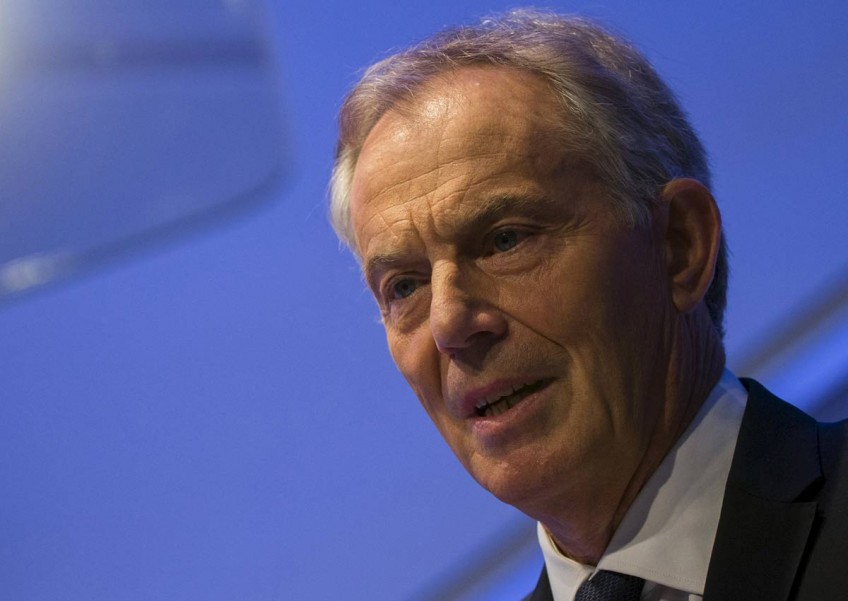Middle East envoy no more, Britain's Blair pushes regional peace

JERUSALEM - Less than six months after stepping down as the Middle East envoy for a quartet of world powers, former British Prime Minister Tony Blair is having another go at helping forge peace in the region, although this time taking a different tack.
After eight years as the regional representative of the Quartet - the United States, the European Union, Russia and the United Nations - during which time virtually no new ground was broken between the Israelis and Palestinians, Blair is still convinced progress on peace is possible.
But rather than the old approach of "put them in a room together" and make them talk, an attitude that has brought limited success over a quarter century of diplomacy, Blair is now advocating a regional approach - something Israeli Prime Minister Benjamin Netanyahu has talked about too.
"It's not that Israelis and Palestinians don't want peace but that the conventional approach has had setbacks," Blair told the Foreign Press Association in Jerusalem on Friday.
"There needs to be a regional approach to a two-state solution to the conflict, one that involves neighbours like Jordan and Egypt and the Gulf states, built on the framework of the Arab peace initiative."
The Arab peace initiative was put forward by Saudi Arabia in 2002 and effectively offered Israel a normalisation of relations with the whole Arab region in exchange for withdrawal from occupied territories, including East Jerusalem.
While initially gaining little traction, it has over the years been cited by Israeli prime ministers, including Netanyahu, as a potential framework, although some elements like withdrawal from the Golan Heights and the right of return for Palestinian refugees remain unacceptable to Israel.
Despite much of the region's focus being on conflicts in Syria, Iraq, Yemen and Sinai, Blair said his contacts with Arab leaders convinced him the Israeli-Palestinian issue remained a priority and something everyone wanted to resolve.
He has set up and is funding his own offices in Jerusalem and Tel Aviv and, as during his days as the Quartet envoy, is spending frequent time in regional capitals, including Doha, Cairo, Amman, and with representatives from Saudi.
Released from the constraints of representing the United States and EU, which regard the Islamist movement Hamas as a terrorist group, Blair has also been able to meet more freely with regional players, although he would not confirm any direct talks with Hamas, which is based in Gaza.
Beyond regional engagement, which he sees as bolstering the Palestinian position, Blair listed two further critical steps:
- Changes on the ground in Gaza and the West Bank that deliver straightforward economic benefits for ordinary Palestinians, including jobs, growth, electricity supply, clean water, housing, better telecoms and other infrastructure.
- And reconciliation between the main Palestinian political groups, Fatah and Hamas, which fundamentally split in 2007, after Hamas seized power in Gaza, and which remain at deep odds despite efforts to form a 'unity' government.
Challenged by a journalist that his approach was "fantasy", Blair said he remained convinced a two-state solution was still possible and would be the best outcome.
While Netanyahu has flip-flopped on the two-state goal, saying earlier this year that it wouldn't happen on his watch, then recommitting to it last week in Washington, Blair indicated that he thought Netanyahu did believe in it and saw that the alternatives would be worse for Israel and the Palestinians.